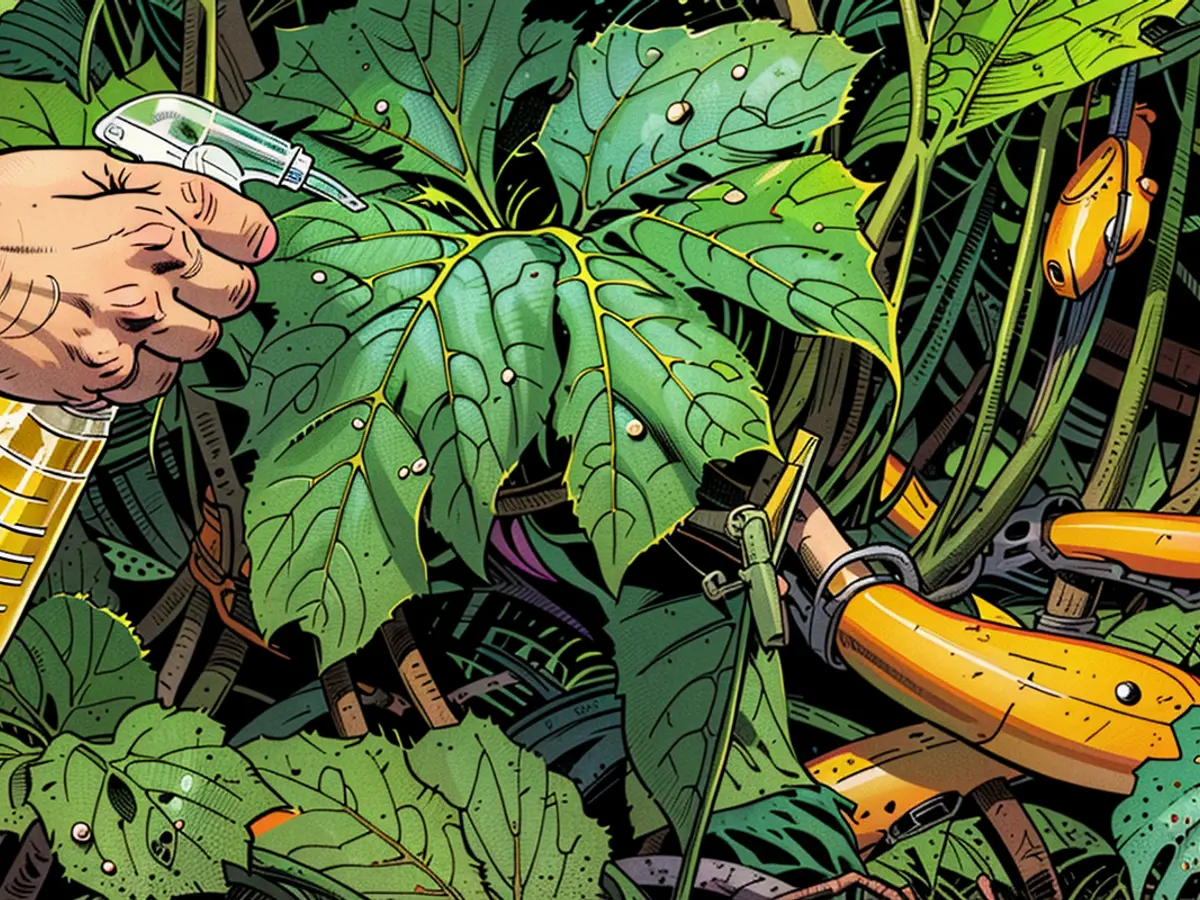Where You Should (and Shouldn't) Use Vinegar in Your Garden
Vinegar is one of my favorite household tools. Inside, it can be used as an alternative to most cleaning products, and I go through an untold amount of it during canning season. Outside, though, vinegar has fewer uses. This flies in the face of so much garden lore, and while experience may vary, I’ve tried almost every garden trend there is. Here are some ways you can (and can’t) use vinegar in the garden.
What vinegar is good for
Sanitizing garden tools
This is the number one best way to use vinegar in the garden. Load up a plastic spray bottle with a 5% vinegar solution and keep it near your tools. Wear it on your tool belt and spray your tools (particularly shears or pruners) with it before you cut anything, and then again between plants. People are the best vector for spreading viruses and fungus in the garden, so cleaning your tools, trellises, and seed trays is essential. While you can use a bleach solution or Lysol, I find vinegar to be just as good.
As a treatment
When you have powdery mildew or a fungus on plants, one of the possible treatments—and one I use—is a solution of vinegar and water. Add four tablespoons of vinegar to every gallon of water and saturate the leaves of just the plant in question. The vinegar will shift the pH on the surface of the leaves, which will hopefully help cure your powdery mildew. While powdery mildew is a real problem in summer gardens (particularly around zucchini and other squash) if you keep it under control, its very treatable and doesn’t affect production.
What vinegar is not so good for
Killing weeds
Weeds suck, I know. I’m there with you, and I will try anything to rid my yard of them. But spraying them with vinegar is problematic. If you’re anywhere near a plant you want, excess spray or a little wind can carry the vinegar to that plant, and it will harm that plant, too. The acetic acid in the vinegar penetrates the surface of the plant. I can see it being useful for some limited applications, like on a deck or patio, where you’re far away from other plants, but be careful. Even in these situations, there are a bunch of better, faster ways to get rid of weeds. (Burn them or dig them up.)
As deer repellent
While deer do not like the smell of vinegar, this is a very temporary solution that requires a lot of upkeep and can affect other plants. You need to soak rags or find another way to have enough concentrated vinegar smell to have an effect. If you spray it around, you’re just going to kill the plants that it hits. The rags will likely drip, and who wants a bunch of smelly rags hanging around destroying the view anyways? Deer require long-term solutions like constructed, six-foot fencing or natural fencing (they do not enjoy elderberries, which grow quickly and can make a natural fence).
Killing slugs and snails
While vinegar will kill slugs and snails, so will lots of things, including ammonia and alcohol, but you wouldn’t pour either into your garden. Again, vinegar is not something you want to spray near plants. The best solution for slugs and snails are traps specifically made for them. Also: Sluggo. Lots and lots of Sluggo.
As a fertilizer
The idea here is that you can use a very low concentration of vinegar in a water solution and it can feed your flowers. Except, why? There are so many better ways to feed your garden that don’t involve something that can harm your plants and throw off the pH in the soil. Buy some real fertilizer, it’s a better route.
As a cleaning agent
As I said at the top, vinegar is great for cleaning. If you need to scrub birdbaths, tools, walkways, etc., it might be second nature to reach for vinegar to help scrub. Remember though—runoff is real and that runoff is going into your soil and garden. Acetic acid will change the pH of your soil, and if there’s enough of it, it will kill your plants. So, under the right conditions where you can control runoff, go for it. Otherwise, a gentle dish soap or some simple elbow grease is the best course of action.
Despite its effectiveness indoors for cleaning and sanitizing, vinegar has fewer uses in the garden. For instance, while vinegar can be used to treat fungal issues such as powdery mildew on plants by shifting the pH on the surface of the leaves, it's not recommended for killing weeds due to the risk of harming nearby plants.








